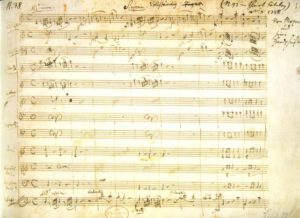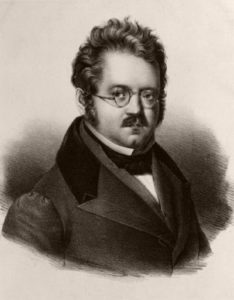
Nicknames. We turn to that paragon of informational accuracy, Wikipedia, for the following definition of the word “nickname”:
“A nickname is a substitute for the proper name of a familiar person, place or thing. Commonly used to express affection, it is a form of endearment and amusement. In rarer cases, it can also be used to express defamation of character, particularly by school bullies [or certain Presidents of the United States]. As a concept, it is distinct from both pseudonym and stage name, and also from a title (for example, ‘City of Fountains’), although there may be overlap in these concepts. A hypocoristic is a nickname of affection between those in love or with a close emotional bond. ‘Moniker’ is a synonym.”
Most nicknames assigned to people are harmless (although whoever thought up “Dick” as a nickname for “Richard” clearly did not anticipate today’s colloquial usage). The majority of nicknames would seem to be first-syllable versions of a proper name: Dan, Lil, Steve, Liz, Sam, Dave, Joe, Ben, Di, Mike, Deb, Irv, Pete, Fred, Lou, Walt, and so forth. Some such nicknames are unisexual: Sal, Pat and Chris, for example. Other nicknames are rather more distantly related to the name they nick: “Sandy” and “Sasha” for Alexander; “Bill” for William; “Jack” for John; “Jim” for James; “Bob” for Robert. (It is my casual observation that the nickname “Bob” has gone the way of black & white TV. In the 1950s, your prototypical bourgeois American “dad” was always named “Bob”. However, today I know not a single “Bob”, including myself, who is under the age of 55 or so. If you were born after 1965, and named Robert, you are called . . . Robert.)

Finally, there are nicknames that have nothing to do with someone’s proper name, nicknames that may – or may not – reflect something of the person to who they are appended: Bubba, Curly, Muffy, Slim, Pumpkin, Spike, Buzz, Buster, Butch, Mad Dog, and Psycho.
When it comes to musical compositions, there are two basic sorts of nicknames. Nicknames given (or at least sanctioned) by composers, and nick names not given (or sanctioned) by composers. In the former category are, for example, Beethoven’s Symphony No. 3, the Eroica (“Heroic”); Felix Mendelssohn’s Symphony No. 5, “Reformation” (a nickname chosen by his sister Fanny); and Robert Schumann’s Symphony No. 3, the Rhenish (“Rhineland”)

As for nicknames not given or sanctioned by composers, there are two further categories: appropriate and inappropriate. Among the latter is the disastrously inappropriate nickname assigned to Beethoven’s Piano Sonata No. 14 in C-sharp minor, Op. 27, No. 2 by the German poet and music critic Ludwig Rellstab. Rellstab called it the “Moonlight Sonata”, a treacly, goopy nickname that has virtually nothing to do with the sonata’s tragic ferocity. Nevertheless, to the enduring horror of all who love Beethoven and the sonata, the nickname has stuck. (Rellstab created the nickname in the 1830s, well after Beethoven’s death, which was wise given the B-man’s wolverine-like temper. Beethoven would have gone after him with a hatchet.)
Among the most appropriate nicknames ever given to a piece of music that was neither given nor sanctioned by its composer is that of “Jupiter” – the Roman king of the gods – to Mozart’s final symphony, which he “copied out from his head” in an astonishing 16 days between July 26 to August 10, 1788.

The nickname was coined in Great Britain by the German-born, London-based violinist, orchestra leader, and impresario-par-excellence Johann Peter Salomon (1745-1815). This is the same Johann Peter Salomon that brough Joseph Haydn to England for his triumphant residencies in 1791-92 and 1794-95. During the course of those visits Haydn composed his last twelve symphonies, which are collectively known as his “London” symphonies. Haydn went on record as stating that his London symphonies were composed “to the taste of the English”, a musical taste formed a few generations before by yet another German-speaking composer, George Frederick Handel (1685-1759). It was a taste for magnificent, royal, pomp-filled orchestral music that featured trumpets and drums. Just like Mozart’s Symphony in C major, K. 551, of 1788.
On October 20, 1819 the nickname “Jupiter” appeared for the first time in print in a concert program for a performance of the symphony in Edinburgh, Scotland. It was again used on March 26, 1821, when the symphony was performed by the London Philharmonic Society. The earliest printed edition of the symphony to bear the nickname was that of a piano arrangement of the symphony made by the composer and pianist (and resident of London) Muzio Clementi, an arrangement published in London in 1823. …
Continue reading, and see Dr. Bob’s Prescribed recording, only on Patreon!
Become a Patron!